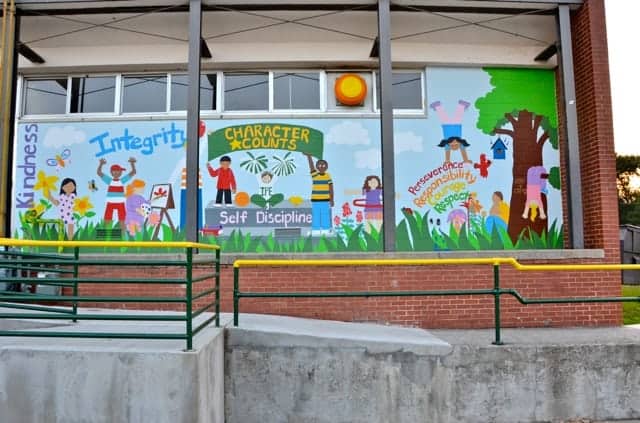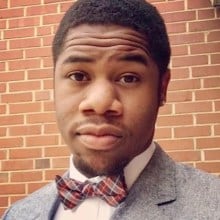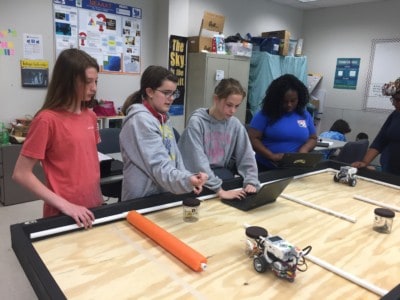Johnny is a young, African-American male living in an average-sized town in North Carolina. Johnny lives with his single mother who did not graduate high school, so she struggles finding a permanent position with any establishment. Although she works hard every day, she can’t afford to move them from their old home. The home is decades worn: thin, uninsulated walls, creaky floors, no central air/heat, and a broken water heater. Johnny gets sick a lot due to the very cold nights he must endure during the winter months. He misses some school, and he has no money for the doctor.
Clean clothes aren’t the top priority, so many mornings, Johnny wakes up and begins to dig something out of the pile of stinky clothes in the corner of his room. He hopes the other kids at school won’t smell him. They already tease him enough about his looks and the fact that they think he’s gay. But every morning, he gets up, takes a cold bath (yes, even in the winter), puts on something, gets on the bus and goes to the schoolhouse.
Johnny has a few good friends that keep him wanting to come every day. There’s Allison, his best friend since third grade, LaTasha who lives on the same road as he does, and Carl, his bowl-cut “twin” who is teased just as much. They’re Johnny’s solitude from the chaos inside and outside of his own mind.
Johnny loves to learn despite the many daily distractions he has to endure. He is a young man of science and he excels in Mrs. Sampson’s class. He enjoys learning how the world works around him, and he wants to be a scientist when he grows up. Mrs. Sampson encourages her students to explore, and she is always facilitating experiments of discovery for her students. Johnny loves group discussions about electricity, fossils, weather, and countless other topics.
Language arts and mathematics are in a different category, however. Johnny reads with ease, but he struggles finding purpose in his academically-gifted classroom setting. His classmates seem to have no problem reading novel after novel and simply answering questions, but Johnny needs more. He wants to discuss what’s going on in the text, make connections, and feel a part of the story. It is now April, and Johnny has resorted to making up answers to the questions and never raising his hand to share.
Mathematics is much of the same. Johnny is intimidated by all of his classmates who have no care in the world other than to just study and get good grades. Many of his classmates live on the other side of town in big houses that are much younger than his. They have a pool, a garage with multiple cars in it, cable, and hot water. They also get to travel and go to the movies with friends. Although his academic potential is on par with all of them, Johnny falls behind because he is one of the only children of color in the class, and he feel like the “black sheep.” He struggles to maintain a “C” average, and his teacher, Mrs. Fernelly, isn’t as understanding or encouraging as Mrs. Sampson.
As the end of the year approaches, Johnny isn’t as excited to go to high school as most eighth graders should be. He is nervous. He doesn’t want to attend the same school as all of his bullies. He doesn’t want to be in the same house in the same situation. He feels as if he won’t make it through the twelfth grade. Attempting to endure his daily insecurities or teasing from his peers for another four year will cause him to either kill himself or someone else. He begins to sink deeper within a depressive mindset, hiding it on the outside to his mother, who is trying her best. His dreams are slowly dwindling away.
A few weeks before the end of the school year, Johnny receives a letter in the mail. The letter is from Raleigh, and it describes a new school initiative referred to as “Early College.” At the new school, one of the first in the entire state, students have the opportunity to take college courses while still in high school and potentially earn a two-year degree within five years. The letter also reads that Johnny has been recommended for the program and an application will be sent to him within the coming week. Johnny is ecstatic. A new school, a new opportunity, and a new chance. College is still in sight for him. Although he hates to leave his friends, Johnny feels this is a right step for his future. His mother is smiling from ear to ear, and Johnny can tell she is just as excited for him.
As his freshman year progresses, Johnny grows more and more enthused about education and his possible future. His classes are enjoyable. All of his teachers promote collaboration, discussion, and critical and creative thinking. He enjoys the project-based learning environment as well as being able to glean knowledge from his classmates who are highly intelligent. Johnny isn’t as intimidated as he used to be. In the small school, his classmates are all family to him. No one teases him based on his looks, and everyone is very receptive to his friendly personality. His teachers encourage him, and they push him to be a leader within the school community. They are honest, nurturing, and, even though they may know some things about his life, they never make excuses for him or allow him to make them for himself. Johnny has no option but to be successful.
The years have come and gone, and now Johnny is in his final year at the early college. He has decided he wants to be an educator because he feels education has unlocked doors that he once never knew existed. He applies for a teaching scholarship to help remedy some of the upcoming college expenses he will need. Neither his parents nor his grandparents have any extra money to pay for his university schooling, but Johnny realizes he must attend a four-year institution in order to follow his dreams. Being at his school, with his support system, has shown him all that he can possibly be, and he refuses to let money hinder his progression.
Johnny applies and interviews for the scholarship. He selects several North Carolina universities that he would like to attend. After a few weeks, Johnny is notified that he has received the scholarship at one of his top-choice institutions. His grandmother reads his acceptance letter over the phone while Johnny stands surrounded by all of his teachers. They shout and clap in pure glee as Johnny laughs hysterically to keep from crying. His past flashes before his eyes, and he’s seen how far he’s come. Nothing will stop him now.
As he stands on stage at the commencement ceremony looking out at his entire school, parents, family, and community members, Johnny states these words:
“CCTL showed me how to strive to be better than I thought I could be. It taught me that being proud of who you are can mean more than the approval of the other six billion people in the world. It showed me that my life is in my hands and holding on tightly to my dreams would allow me to fly over all my obstacles.”
Johnny goes on to a four-year university. He graduates with honors with a degree in education. He lands a position and begins his journey as the “change agent” he wants to be. He never forgets the life lessons his former teachers and mentors instilled in him while also giving him the academic knowledge that would take him further.
This story may seem a like a cliché, tear-jerker film, but Johnny’s story represents the power and influence a strong support system at school has. As educators, we cannot solve every problem that our students enter the classrooms with. Many, we will never hear about or observe. But we must seek to understand the whole child, and to educate the whole child as well. Humans seek understanding, compassion, and a sense of belonging no matter the age. Sadly, many students enter our classrooms with troubled minds and spirits.
How then do we expect them to be receptive to not only the academic curriculum but to the “unspoken curriculum” that so often goes unacknowledged? Educators must be given the time and opportunity to really touch the lives of the young minds that enter the walls of their schoolhouse every day. If we do not, we are sometimes ending the journey of a great mind, a “game-changer,” an unimaginable future before it even starts to manifest.
I am Johnny. Johnny is me. But Johnny is also countless other young men and women who feel trapped, unable to escape the pitfall around them. My educators extended their hands of love and compassion, pulled me out of the pit of despair that I was sinking deeper into, hiding it from the family that loved me, and they showed me that life wasn’t over for me, not by a long shot. My educators, who saw beyond my situation and sought to show me my potential, are the reasons why I found my purpose. I now am able to stand with the many other individuals as a barrier against the systems of misguidance, inequality, inequity, and oppression. Together, we unlock a greater future for everyone.





